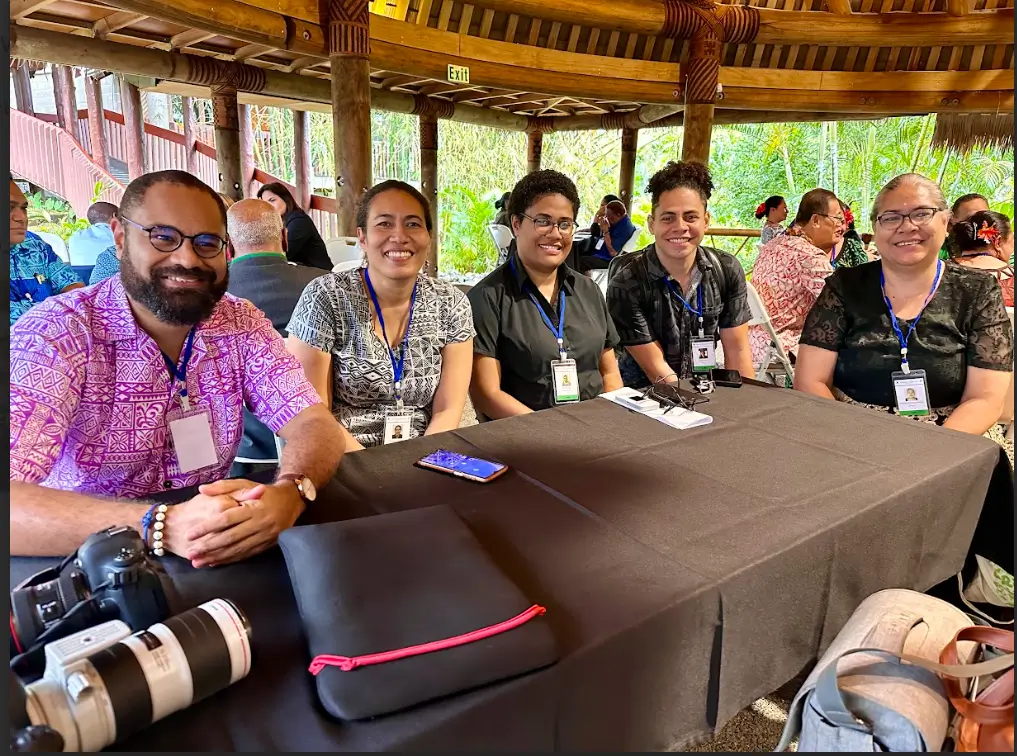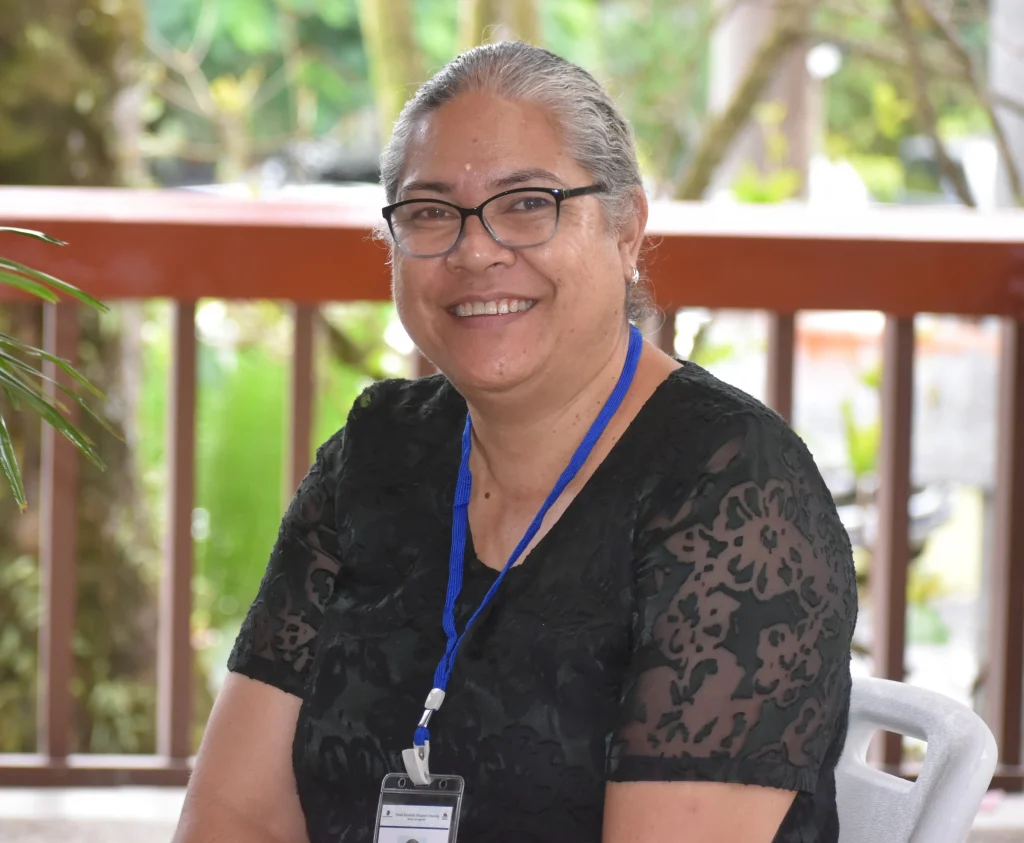
Since 2019, Pacific Citizen’s involvement and monitoring of public finance management have grown considerably. Highlights include streamlining budget procedures, bolstering oversight, guaranteeing accountability and transparency in public finances, and encouraging greater public participation in budget open forums.
Emeline Ilohahia, the executive director of the Pacific Islands Association of Non-Governmental Organizations (PIANGO), emphasized the accomplishments of the Vaka Pasifika Program in enhancing financial transparency and citizen-focused governance throughout the region on the fringes of the Pacific Islands Forum Economic Ministers Meeting in Fiji.
With the support of the European Union (EU) and the United Nations Development Programme (UNDP) Pacific Office in Fiji, notable progress has been made in the pilot countries’ transparency towards a people-centered Public Finance Management (PFM) system that promotes the welfare of all Pacific people.
“This is not empty talk; in Fiji, for instance, the government changed the Financial Management Act to require the yearly release of the Citizens Budget Guide. This came to light after the initiative collaborated with the Fiji Council of Social Services, a national member, to create the first-ever Citizens Budget Guide in 2020, according to Ilohahia.
The Tonga Legislative Assembly hosted its inaugural budget briefing for members of the nation’s civil society organizations (CSOs) in 2020. The purpose of the briefing was to acknowledge the vital role that CSOs play in Tongan communities and the significance of their participation in the national budgetary process.
Federated States of Micronesia (FSM) CSOs in Pohnpei were given the opportunity to examine and participate in the FSM’s first Citizen Budget in 2024. CSOs in Palau have frank discussions with government officials over the dearth of funding for gender-based violence and their own gender budget analysis.
The fact that domestic Vaka Pasifika partnership initiatives have greatly increased citizen participation in budget processes throughout the area, according to Ilolahia, is encouraging.
Through the Vaka Pasifika project, the European Union is strengthening the democratic governance throughout the Pacific by increasing institutional accountability to the people and bringing transparency to public finances.
Five years into the partnership, CSOs, the government, and development partners have worked together to scale up efforts for robust, real, and long-lasting relationships at the national, regional, and international levels.
In light of these efforts, PIANGO plans to introduce a regional open budget platform called the Pacific Open Budget platform, which will offer a readily available, comparative overview of the budgets of the Pacific Nations.
“There is still work to be done before all pertinent budgetary information is easily accessible to the public, but we believe that our efforts will show how interested and capable civil society is in participating in the digitalization and openness of our region.
Ilolahia continued, “As development actors, we are reflecting on and self-assessing our own CSO accountability mechanism, even as we are strengthening our oversight function and engagement in public finance from Palau to Samoa.
“We know that strong public financial management can help drive sustainable development for all Pacific people,” said Munkhtuya Altangerel, resident representative for the UNDP Pacific Office. A thorough discussion on accountability in the Pacific has emerged as a result of the Vaka Pasifika initiative, which has made it possible for much-needed public talks on planning, resources, priorities, and the future that the people of the Pacific want.
The relationship is a cornerstone of the Vaka Pasifika initiative, which is sponsored by the European Union with six million euros, and aims to provide Accountable Public Finances to Pacific people. The project’s goal is to improve governance frameworks so that Pacific nations can provide tailored public services to their citizens’ unique requirements.
Building on past successes together, the partnership has produced educational publications printed in multiple languages, such as the Citizen Budget Guides of Fiji, Solomon Islands, Kiribati, Tonga, Vanuatu, and Tuvalu (Palau and Samoa to be finished shortly). Additionally, budget advocacy grants and capacity-building activities have been made possible.
